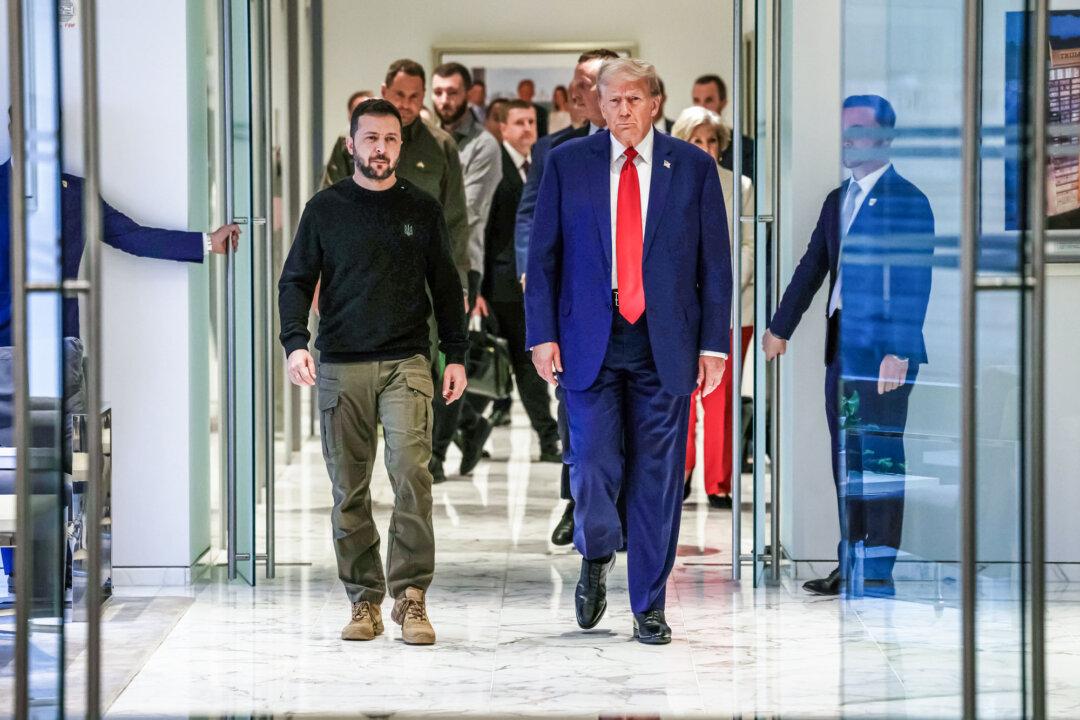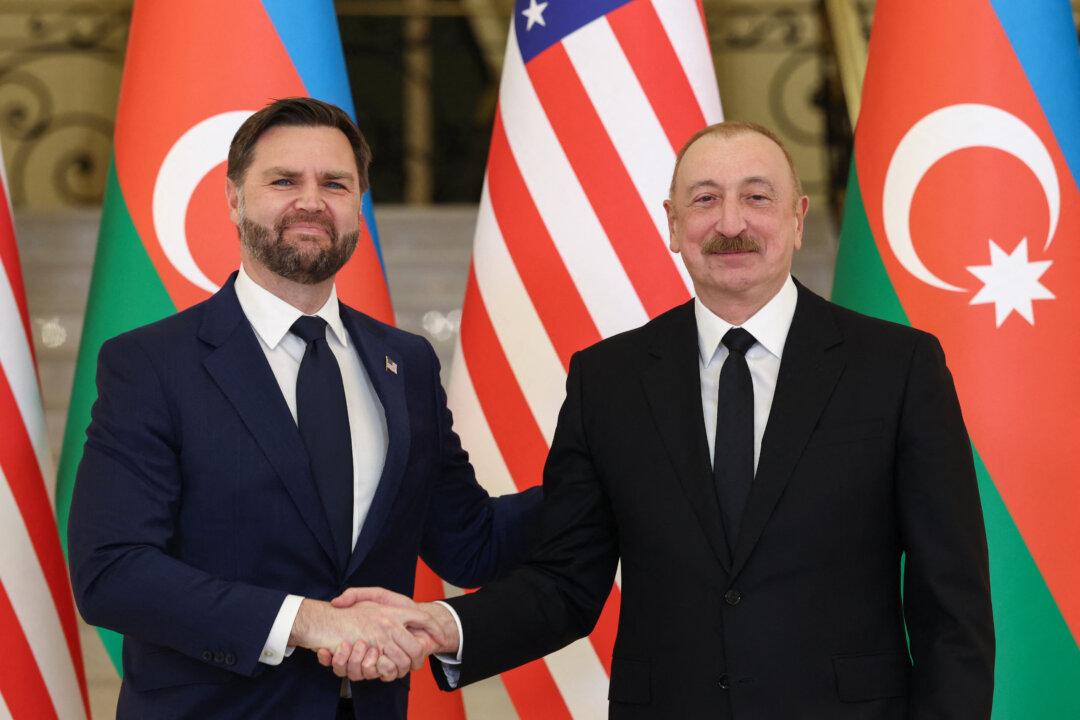Ukrainian President Volodymyr Zelenskyy said he has had a “productive conversation” with President-elect Donald Trump, amid concerns Trump’s return to the White House would usher in a drop in U.S. support for Kyiv in its ongoing war with Russia.
“Yesterday, I spoke with President Trump, as many of you did. It was a productive conversation, a good conversation,” Zelenskyy said in a speech before the European Political Community Summit in Budapest, Hungary, on Nov. 7.





